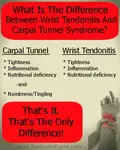Chronic Joint Pain And How To Get Rid Of It
Chronic Joint Pain is a predictable outcome when certain factors are in place.
Mostly people live with chronic pain. They just assume it will eventually go away. When it doesn't, they go see a doctor. When they try what their doctor prescribes and still have pain, most people just try to learn to live with the ongoing pain.
That's the bad news. The good news is, is that for the most part, joint pain, chronic or otherwise, is reversible. If there's not too much damage, if there's no joint deformation, then there's very little reason you shouldn't be able to get your joints back to a pain free state.
Where Can I Have Chronic Joint Pain?
You can get chronic joint pain anywhere you have a joint.
For instance:
- facet joints in your neck
- low back vertebral joint
- sacroiliac (si) joint
- fingers and thumb
- hip joint(s)
- knee joint(s)
- elbow joint(s)
- shoulder joint(s)
- ankle joint(s)
- toe joint(s)
Really, anywhere there's a joint, there can be chronic joint pain.
What Happens If I Go See A Doctor For Chronic Joint Pain?
"Should I see a doctor if I have chronic joint pain?"
If you go see a doctor about your chronic joint pain, you will almost certainly get a diagnosis.
Maybe your first visit or two you won't get a diagnosis but you will get a prescription for:
Weeks and/or months later, when that doesn't work, you'll go see the doctor again.
Then, you might get a Corticosteroid Injection, depending on the joint infolved and your other symptomology.
Maybe your doctor will run some tests to see if you have Rheumatoid Arthritis.
Sooner or later your doctor will give you a diagnosis. More on that in the 'Causes' section below.
But that's where the investigation will stop. Your doctor will proclaim a diagnosis, and then will 'treat' you for that diagnosis.
For instance, if you get a diagnosis of rheumatoid arthritis, you will get treated for that. Meaning, you will be given drugs to suppress the symptoms.
But your doctor will never ask WHY you developed rheumatoid arthritis. Will never inquire into the reasons that your symptoms developed in the first place.
Partly this is because doctors (for the most part) believe that rheumatoid arthritis is incurable (which is too bad, because it is).
And partly it's because doctors just aren't trained in causes. They're only trained in symptoms and what pharmaceutical drugs to give for them. This also is too bad, because pharmaceutical drugs do not cure anything. At best they manage symptoms.
Should I See A Doctor If My Joints Keep Hurting?
Should you go see a doctor if you have chronic joint pain?
Probably, yes.
See what they have to say. See the results of any tests they run. Rule out anything 'medical' like bone cancer or diabetes.
Symptoms Of Chronic Joint Pain
Chronic joint pain is a symptom, not a disease.
By which I mean, the pain in your joints isn't actually the problem (obviously it's a problem to you, but it's not THE problem) it just a SYMPTOM of the problem.
If you want to get rid of pin in your joints, then you want to start figuring out WHY you're having the symptoms you're having.
There are a variety of possible symptoms in the joints, including but not limited to:
- pain (mild to severe)
- ache (constant or comes-and-goes)
- stiffness
- joint deformation
There will definitely be a Process of Inflammation.
Each and every symptom exists for specific reasons.
For more on symptoms, see: Joint Pain Symptoms
The important thing to know here is that the chronic pain in your joint symptoms arrived BECAUSE of something. They didn't just fall out of the blue sky for no reason.
Along those lines, Sudden Onset Joint Pain is primarily due to new infection, NOT pre-existing issues that are just flaring up.
What Causes Chronic Joint Pain?
So every symptom of joint pain is cause by something.
And even the 'chronic' aspect, the ongoing existence one or more symptoms, is that way for very specific reasons.
If your doctor doesn't know why you're having symptoms, that's a red flag.
If you're 'older', your doctor will likely blame your osteoarthritis on 'aging'. But that's a lie. Aging has very little to do with joint inflammation and/or joint damage.
Joint pain, chronic or otherwise, comes from three main directions:
- Damage (car crashes, sports, falls)
- The Tendonitis dynamic (tightness, inflammation, nutritional lack)
- Systemic issues like Rheumatoid Arthritis (RA) or bacterial infection
Here are common diagnoses claimed to be the cause of joint pain chronic or short term:
- Rheumatoid Arthritis
- Osteoarthritis (with or without a history of joint damage)
- Bacterial Infection
See: Joint Pain Causes
Effective Treatment Of Chronic Joint Pain
Notice the headline there is 'Effective Treatment'.
There are lots of treatments for ongoing joint pain out there. You've probably tried some of them...but still have chronic pain in your joints.
So whatever you've tried so far hasn't been effective.
That doesn't necessarily mean that you have a 'bad' case. It just means that you were using the wrong tools for the job.
You wouldn't dig a ditch with a spoon, would you? No, you'd use a shovel. Or better yet, heavy machinery with a big digging scoop on it.
The following will never fix chronic pain in a joint:
- corticosteroid injections
- rest
- immobilization
- heat
- pharmaceutical drugs
- Products for Natural Joint Pain Relief
Why can't those fix joint pain?
Because they don't effectively counter the chronic causes of joint pain.
That makes them a poor treatment option, if not a bad treatment option.
Return to the top of this Chronic Joint Pain page.
Go to the www.TendonitisExpert.com homepage.

